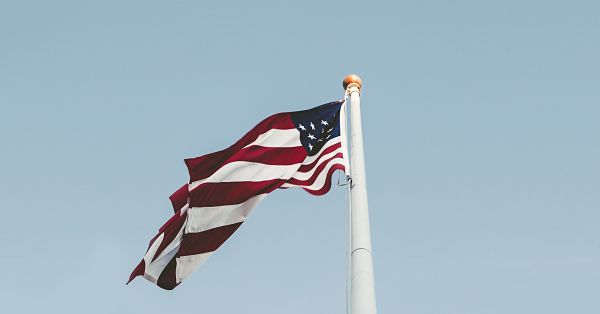
I have made it clear that fighting for the right of Colin Kaepernick to take a knee for the national anthem is not a high priority for me. A big part of my apathy is the hypocrisy of progressives who only seem to fight for the jobs of those who share their political ideals. I think a case can be made for supporting Kaepernick, particularly in light of the stupidity coming out of our president’s mouth, but I will not be doing so under these circumstances.
But during my informal sabbatical I thought more about the Kaepernick situation. The ongoing NFL controversy can provide further insight into some of our social conflict. I also think it supports my contention from the last blog that we need to engage in meaningful intergroup conversation if we are going to deal with issues of social justice in our society.
So let us summarize what has happened. Kaepernick decided to use the national anthem as an opportunity to provide attention to the some of the racial problems blacks face today. I think it is fair to say that due to the backlash against his anthem protest, he no longer has an NFL job. It is also fair to say that the NFL ratings are slumping in part due to the controversy which resulted in new rules this year intended to restrict the protest. However, during the preseason we have seen NFL players still engage in some forms of protest, in part as a reaction to President Trump’s interference in this controversy.
This controversy has created another opportunity for individuals to argue about what is proper and right in our society. Many conservatives feel that the national anthem is not an appropriate venue for such a protest. Many progressives feel that this is yet another example of white Americans unwilling to deal with racism.
If we can agree on this basic set of facts, then I would like to focus on one particularly interesting angle to this situation. The original intention of the protest was to bring attention to racial injustice in the United States. The hope would be that this attention would make it easier to make the social alterations so that those injustices can be addressed. With that in mind I find myself asking a basic question. Is there anyone in society who will become more predisposed to fight racial injustice due to the Kaepernick controversy?
Of course no one can answer this question with certainty. It is possible, and perhaps even likely, that there is someone somewhere who has become more “woke” due to the activism of Kaepernick and his defenders. But I seriously doubt that there are very many such individuals. In fact, I suspect that this entire controversy has generally made majority group individuals less likely to confront racial injustice rather than more likely to do so.
It is not merely the rhetoric coming across my facebook feed that leads me to the conclusion that the Kaepernick controversy has hardened, rather than softened, the attitudes of moderate and conservative whites towards issues of racial justice. I have also spent time listening to those moderate and conservative whites talk about racial issues. I have a general idea of how they approach those issues, and my understanding of their approach has helped me to learn how to reach out to them. I have had decent success speaking at conferences to help moderate and conservative whites rethink their previous perspectives on racial issues and attempt to understand the perspectives of people of color.
But perhaps I am wrong. Perhaps you know a lot of people who previously were insensitive towards people of color or even racist toward them and were inspired by Kaepernick. Do you know many such people? Or is it the case that this entire controversy has made your moderate and conservative friends less open to dealing with racial issues? Has it merely reinforced their propensity to blow off the concerns of people of color? If you answer those questions honestly can you say that the Kaepernick controversy and NFL protests are improving race relations?
I suspect that if you carefully think about it that you will come to the same conclusion that I have, which is that the NFL controversy has made whites less, not more, likely to deal with racial injustice. Yet activists have rallied around the NFL players and are determined to fight heartily for their right to engage in this type of protest. In a strictly pragmatic manner this is a bad allocation of limited resources. Time and energy that could be used in more productive ways are being wasted fighting for a type of protest that will not generate any movement towards meaningful change. The natural question is why such activists are so invested in the protest of Kaepernick and the other NFL players. I have two possible answers to that question.
First, and I think the most likely answer, is that such activists are clueless about the effects of these protests. Somehow in their minds they believe that these protests will set off a wave of social energy that will result in the type of social reforms they want. The protests do excite those already committed to such reforms, and so these individuals cannot see that these protests are making it harder, and not easier, for moderate and conservative whites to support them.
I know that many activists do not care about attaining the support of those whites. They believe themselves to be on the side of the angels and assert that whites need to just support them in what they want to do. This type of belief flies in the face of what we know about human nature. Individuals are highly unlikely to support a social movement that merely dictates to them what they should believe and offers no attempt at offering contextualized legitimation. To put it plainly, nobody likes to be told what to do and be expected to do it without being even offered an explanation that they can understand. The NFL protests does not offer that type of contextualized explanation and are doomed to fail in their stated purpose, which is to promote social change.
I see this as a failure to actually listen to moderate and conservative whites and thus the use of techniques that will fail to persuade them. I have had some success speaking at Christian conferences towards moving moderate and conservative whites to a better understanding about our racialized society because I have listened to them in the past and know what works. The failure to craft a message that actually reaches individuals who disagree or are indifferent to the concerns of race activists leads to the type of misallocation of resources that has so many of them fighting to engage in a protest that hurts, rather than helps, their chosen causes.
When I talk about active listening, I sometimes get pushback from progressives that they have nothing to learn from unwoke whites. Beyond the arrogance of insisting that one cannot learn from the perspectives of others, there is clearly a key lesson they are missing. Even if these activists are 100 percent right about what our society needs and the whites are 100 percent wrong, they can still learn how to communicate with those whites to gain their support. We only learn how to communicate to others in ways they can hear if we have listened to what they have to say and how we can reach them. The debacle that is the NFL protests is simply another example of why active listening is so important in dealing with conflicts surrounding social justice issues.
There is a second possible reason why such activists persist in a strategy that will not advance the social changes they desire. Perhaps supporting these protests is not about producing social change, but about creating social power for selected social groups. If the protesters can force the powerful NFL to back down, then it indicates that they have a great deal of social power. Demonstrating power may be about ego or may be so that they hope to defend marginalized groups in the future. However, it is not about using these protests to create current social reforms. While we have little reason to believe that such displays of protest will lead to those reforms, they may help to underscore the social power of these activists.
In the end my analysis strengthens my apathy about the NFL protests. I have little interest in fighting for the power of the woke folks and do not want to engage in activity that has almost no chance of creating productive social changes. But perhaps in the aftermath of such protests, some individuals will begin to realize the importance of learning to engage in active listening so that they can create a more productive outreach to majority group members. Perhaps, but if history is any indicator, I would not hold my breath waiting for such activists to come to that conclusion.
Update: Folks. I am not going to allow excessive name-calling. If you have an argument then make it. But do not be insulting to me or others. I was just going to show my contempt for such comments but I decided that I am not going down into the mudpit. So I deleted some comments and my response to them. And I will delete any other name-calling comments as well.
Update 2: Sorry but I do not buy the King comparisons. You have to look at context. King made an effort to reach out to whites of his day in a way they would understand him. This was part of the basis of his philosophy of non-violent protest. You have to read King in the original or you will miss how much he also cared about the souls of whites. It was not merely about dictating to them what they should believe and do. He had contemporaries who did not show such a concern such as Carmichael and Malcolm X. I am not saying that King precisely adopted my ideas of active listening because he was in a different era. But if we are looking at intergroup communication then King is more of the model for what I am arguing if we were talking about the 1960s. Finally, the idea that my idea is that we do not work towards change indicates a lack of understanding of how we can make enduring change. If you do not reach those whites then you cannot get the legitimacy you need to have that enduring change. Anybody who as seen the sort of conversations that come out of active listening would not make the mistake of thinking that those working those conversations do not want to see change. We just want to see change that will last.












